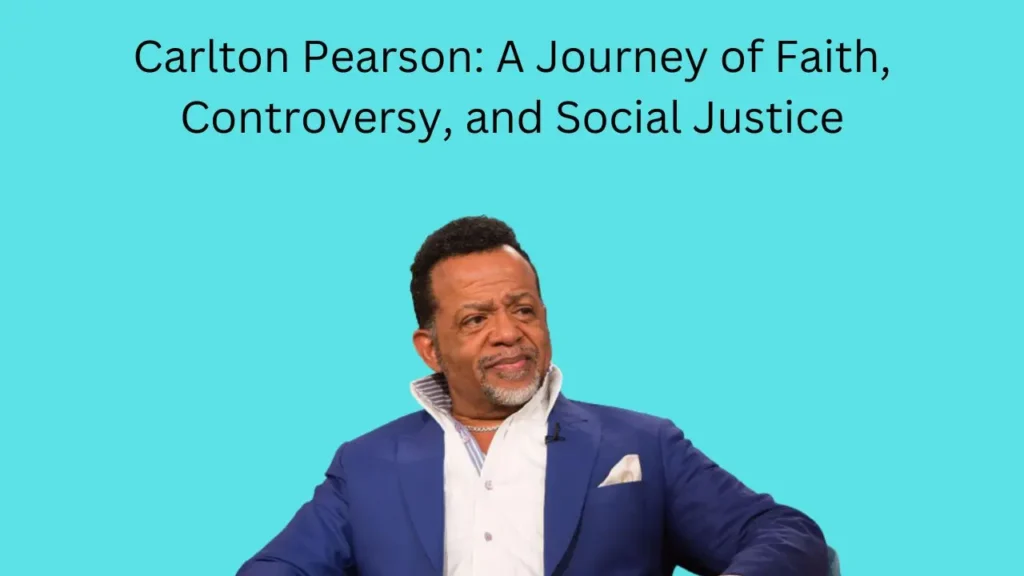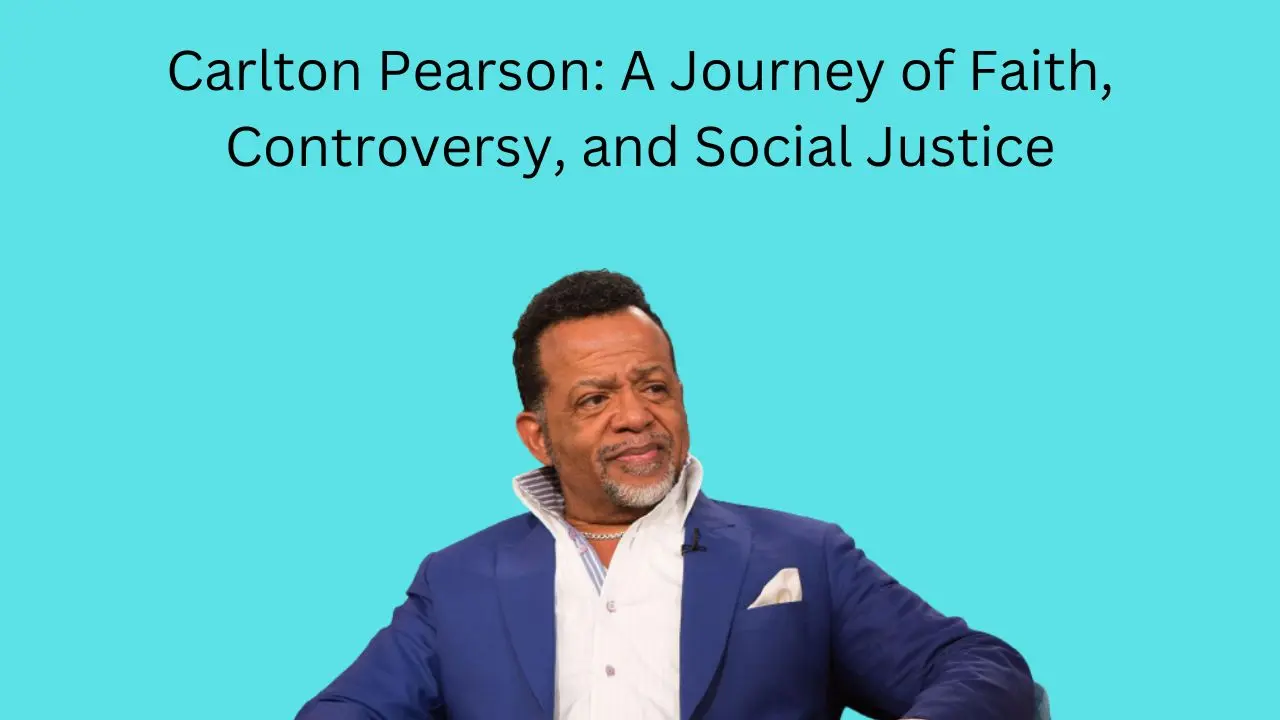Carlton Pearson’s Networth is estimated to have been between $500,000 and $1 million at the time of his death.
Carlton Pearson was a prominent American megachurch pastor who embraced a liberal theology based on universal salvation, the belief that all people will ultimately be saved. His teachings, which contrasted sharply with the traditional Pentecostal doctrine of hell and damnation, sparked a firestorm of controversy and led to his ostracism from the Pentecostal community. Despite the intense backlash, Pearson remained steadfast in his beliefs and continued to advocate for a more inclusive and compassionate Christianity.
Early Life and Rise to Prominence
Pearson was born in Tulsa, Oklahoma, in 1953, into a devout Pentecostal family. He experienced a religious conversion at a young age and felt a calling to ministry. After attending Oral Roberts University, he began preaching and quickly gained a reputation as a charismatic and powerful speaker.
In 1981, Pearson founded Higher Dimensions Family Church in Tulsa, which eventually grew to a congregation of over 6,000 members. He also became a popular figure on Trinity Broadcasting Network, gaining a national and international audience.

Embracing Universal Salvation
In the mid-1990s, Pearson began to question the traditional Pentecostal teachings on hell and damnation. He argued that a loving God would not condemn people to eternal torment and that Jesus’s sacrifice extended to all of humanity. His views aligned with Christian universalism, the belief that all people will ultimately be reconciled with God.
Pearson’s embrace of universal salvation generated significant controversy within the Pentecostal community. He was accused of heresy and labeled a false teacher. In 2000, he was formally expelled from the Azusa Street Mission, a Pentecostal organization that had previously been supportive of his ministry.
Fallout and Resilience
The controversy surrounding Pearson’s teachings had a devastating impact on his personal and professional life. His church membership dwindled, and he faced financial ruin. His family also experienced significant stress and hardship.
Despite the challenges, Pearson remained steadfast in his beliefs. He founded Azusa Christian Center, a new church that embraced his progressive theology. The church attracted a loyal following of those who resonated with Pearson’s message of inclusion and love.
Continued Impact
Throughout his career, Pearson remained a vocal advocate for social justice. He spoke out against racism, poverty. He also used his platform to support causes such as AIDS awareness and prison reform.
Pearson’s life and teachings serve as a reminder of the power of faith, the importance of questioning dogma, and the courage to stand up for what one believes in. He faced immense opposition for his unorthodox views, but he never wavered in his commitment to a more inclusive and compassionate Christianity. His legacy continues to inspire those who seek a more loving and just world.
Conclusion
Carlton Pearson was a complex and controversial figure, but his impact on Christianity and social justice is undeniable. He challenged traditional teachings, advocated for inclusivity, and stood up for the marginalized. His story is a testament to the power of faith, the importance of questioning dogma, and the courage to stand up for what one believes in.
In Memoriam
Carlton Pearson passed away on November 19, 2023, at the age of 70. He is survived by his wife, Hazel, and his three children. His legacy continues to inspire those who seek a more loving and just world.
1. Who was Carlton Pearson?
Carlton Pearson was an American evangelical pastor and author who became known for his controversial teachings on universal salvation. Pearson was born in Tulsa, Oklahoma, in 1953, and he graduated from Oral Roberts University in 1976. He founded Higher Dimensions Family Church in Tulsa in 1981, which eventually grew to a congregation of over 6,000 members. Pearson also became a popular figure on Trinity Broadcasting Network, gaining a national and international audience.
In the mid-1990s, Pearson began to question the traditional Pentecostal teachings on hell and damnation. He argued that a loving God would not condemn people to eternal torment and that Jesus’s sacrifice extended to all of humanity. His views aligned with Christian universalism, the belief that all people will ultimately be reconciled with God.
Pearson’s embrace of universal salvation generated significant controversy within the Pentecostal community. He was accused of heresy and labeled a false teacher. In 2000, he was formally expelled from the Azusa Street Mission, a Pentecostal organization that had previously been supportive of his ministry.
2. What is universal salvation?
Universal salvation is the belief that all people will ultimately be saved. This belief is in contrast to the traditional Christian doctrine of hell and damnation, which holds that some people will be condemned to eternal punishment in hell.
Pearson’s teachings on universal salvation were based on his belief that God is a loving God who would not condemn people to eternal suffering. He also argued that Jesus’s sacrifice on the cross was sufficient to redeem all of humanity.
3. Why was Carlton Pearson so controversial?
Pearson’s teachings on universal salvation were met with significant opposition from the Pentecostal community. Many Pentecostals believed that his teachings were heretical and that he was denying the core tenets of Christian faith. Pearson was also criticized for his association with the New Age movement.
In addition to his theological views, Pearson was also controversial for his outspokenness on social and political issues. He spoke out against racism, and poverty. He also criticized the Iraq War and the Bush administration.
4. What happened to Carlton Pearson?
The controversy surrounding Pearson’s teachings led to a decline in his ministry. His church membership dwindled, and he faced financial ruin. He was also ostracized by many of his former friends and colleagues.
Despite the challenges, Pearson remained steadfast in his beliefs. He founded Azusa Christian Center, a new church that embraced his progressive theology. The church attracted a loyal following of those who resonated with Pearson’s message of inclusion and love.
Pearson continued to be a vocal advocate for social justice throughout his life. He spoke out against injustice and inequality, and he supported causes such as AIDS awareness and prison reform.
5. When did Carlton Pearson die?
Carlton Pearson passed away on November 19, 2023, at the age of 70. He is survived by his wife, Hazel, and his three children.
6. What was Carlton Pearson’s net worth?
Carlton Pearson’s net worth is estimated to have been between $500,000 and $1 million at the time of his death.
7. Who is Carlton Pearson’s wife?
Carlton Pearson’s wife’s name is Hazel Pearson. They were married in 1977.
8. Who were Carlton Pearson’s children?
Carlton Pearson and his wife Hazel had three children together: two daughters and one son.
9. What books did Carlton Pearson write?
Carlton Pearson wrote a number of books, including “5 Pillars of the Kingdom,” “The Gospel of Inclusion,” and “No Hell: A New Christian Hope.”
10. Where is Carlton Pearson buried?
Carlton Pearson is buried in Rose Hill Memorial Park in Tulsa, Oklahoma.

